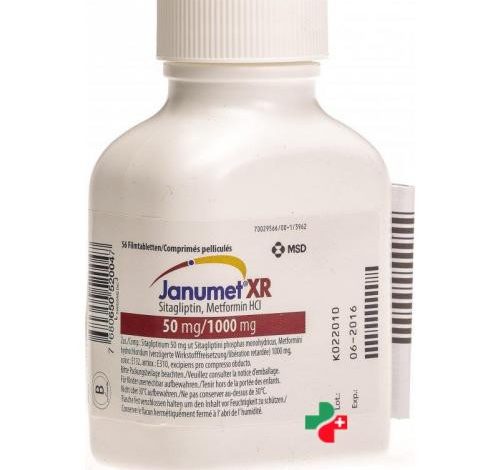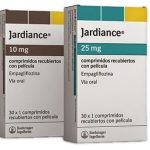Is There A Cheaper Alternative To Janumet?

The rising cost of fixed-dose combination anti-diabetic medication is a growing concern for patients and healthcare providers alike. Fixed-dose combination medications combine two or more drugs into a single pill, which can improve patient adherence and simplify treatment regimens for people with diabetes.
The reasons for the rising cost of fixed-dose combination anti-diabetic medication are complex and multifactorial. Some of the factors that contribute to the rising cost of these medications include:
1. Research and Development Costs: Developing and testing new medications is a costly process that involves many years of research and clinical trials. These costs are often passed on to consumers in the form of higher prices.
2. Manufacturing Costs: The manufacturing process for fixed-dose combination medications can be more complex than for single-component medications, which can lead to higher production costs.
3. Patent Protection: Patents protect the intellectual property of drug manufacturers, allowing them to charge higher prices for their products without competition from generic alternatives.
4. Limited Competition: Fixed-dose combination medications may have limited competition from other manufacturers, which can lead to higher prices.
5. Insurance Coverage: Insurance coverage for fixed-dose combination medications may be limited or nonexistent, which can result in higher out-of-pocket costs for patients.
In this article, we shall be taking a good look at fixed-dose combination anti-diabetic medication with a specific focus on the cost of treatment with Janumet and possible alternatives.
What is Janumet?
Janumet is a prescription medication used to treat type 2 diabetes. It is a fixed-dose combination of two drugs, sitagliptin, and metformin, which work together to lower blood sugar levels in people with diabetes.
Sitagliptin is a dipeptidyl peptidase-4 (DPP-4) inhibitor, which works by increasing the levels of incretin hormones in the body. Incretin hormones are naturally produced in the intestines and help to regulate blood sugar levels by stimulating the release of insulin from the pancreas and reducing the release of glucose from the liver. By inhibiting the DPP-4 enzyme, sitagliptin increases the levels of incretin hormones in the body, which leads to increased insulin release and decreased glucagon secretion. This results in lower blood sugar levels and improved glycemic control in people with type 2 diabetes.
Metformin is a biguanide medication that works by decreasing the amount of glucose produced by the liver and improving the body’s sensitivity to insulin. It also helps to improve the uptake and use of glucose by cells in the body.
By combining these two medications in a single pill, Janumet can help to simplify treatment regimens for people with type 2 diabetes and improve patient adherence. It is typically taken twice a day, with meals, and the dosage may be adjusted by a healthcare provider based on the patient’s blood sugar levels.
Common side effects of Janumet include headache, stomach upset, diarrhea, nausea, vomiting, and changes in taste. Rare but serious side effects may include lactic acidosis, a buildup of lactic acid in the blood, which can be life-threatening. Patients should seek medical attention immediately if they experience symptoms such as weakness, muscle pain, difficulty breathing, or stomach pain with nausea and vomiting.
How Much Does Janumet Cost?
The cost of Janumet (sitagliptin and metformin) can vary depending on several factors such as location, pharmacy, insurance coverage, and dosage strength.
According to GoodRx, a prescription drug price comparison website, the average retail price of Janumet 50mg/1000mg is around $534 for 60 tablets, which is a 30-day supply. However, prices may range from $495 to $575, depending on the pharmacy and location.
It’s important to note that the price of Janumet can be significantly lower for those who have health insurance coverage. The amount paid by patients can vary based on their insurance plan’s coverage and co-payments.
Additionally, there may be manufacturer discounts or coupons available for Janumet that can help to reduce the cost. Patients can check with the manufacturer, Merck, or visit their website to see if any discounts or savings programs are available.
It’s important to discuss the cost of Janumet and any concerns about affordability with your healthcare provider. They may be able to provide information on more affordable alternatives or suggest other ways to manage the cost of your diabetes medicine.
Is There A Cheaper Alternative To Janumet?
Yes, there are several cheaper alternatives to Janumet that may be prescribed by a healthcare provider to treat type 2 diabetes. Here are some options:
1. Metformin: Metformin is a medication that works by decreasing the amount of glucose produced by the liver and improving the body’s sensitivity to insulin. It is a commonly prescribed medication for type 2 diabetes and is often the first-line treatment. Metformin is available in generic form and is generally less expensive than Janumet.
2. Sitagliptin: Sitagliptin is the active ingredient in Janumet that acts as a DPP-4 inhibitor to increase the levels of incretin hormones in the body. It is also available as a standalone medication, and several generic versions of sitagliptin are available, which may be less expensive than Janumet.
3. Glipizide: Glipizide is a sulfonylurea medication that works by stimulating the pancreas to release more insulin. It is also available in generic form and may be less expensive than Janumet.
4. Pioglitazone: Pioglitazone is a medication that helps to improve the body’s sensitivity to insulin and reduce the amount of glucose produced by the liver. It is available in generic form and maybe a more affordable option than Janumet.
It’s important to note that while these medications may be less expensive than Janumet, they may also have different side effects and may not be appropriate for all patients. It’s important to discuss the potential benefits and risks of any medication with a healthcare provider before making any changes to your diabetes treatment plan.
What Are The Available Discount Programs For Janumet?
There are several discount programs available for Janumet that can help to reduce the out-of-pocket cost for patients. These programs are typically offered by the drug manufacturer or through third-party organizations.
Here are some of the discount programs available for Janumet:
1. Merck Prescription Discount Program: This program is offered by the manufacturer of Janumet, Merck. It provides eligible patients with savings on their prescription medication, including Janumet. To be eligible, patients must have a valid prescription for Janumet and meet certain income and insurance criteria. The amount of savings varies depending on the medication and the patient’s financial situation.
2. Patient Assistance Program: The Merck Patient Assistance Program provides free medication to eligible patients who cannot afford to pay for their prescriptions. To be eligible, patients must meet certain income and insurance criteria and have a valid prescription for Janumet.
3. Medicare Part D Extra Help: This program is offered by the federal government and provides financial assistance to people with limited income and resources who are enrolled in Medicare. Extra Help can help to cover the cost of prescription medications, including Janumet.
4. Prescription Discount Cards: There are several prescription discount cards available that can help to reduce the cost of Janumet and other prescription medications. These cards are typically free to use and can be obtained online or through healthcare providers. Examples of prescription discount cards include GoodRx, ScriptSave WellRx, and SingleCare.
It’s important to note that discount programs and savings opportunities for Janumet can vary depending on location, insurance coverage, and other factors. Patients should check with their healthcare providers or the manufacturer of Janumet to see what discount programs may be available to them.





